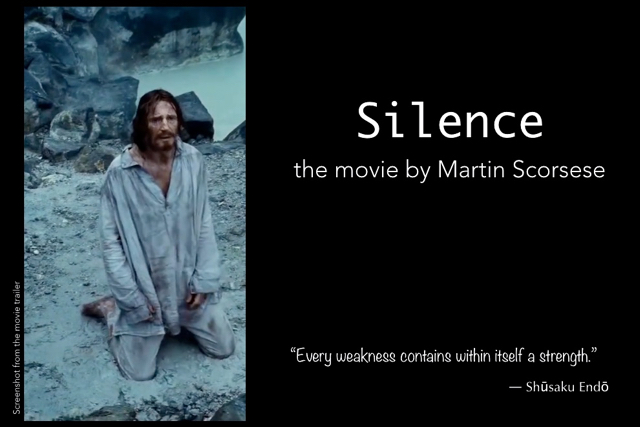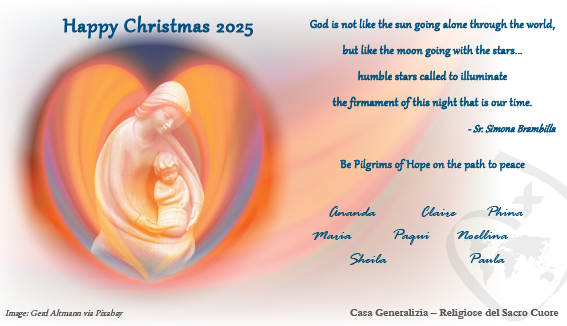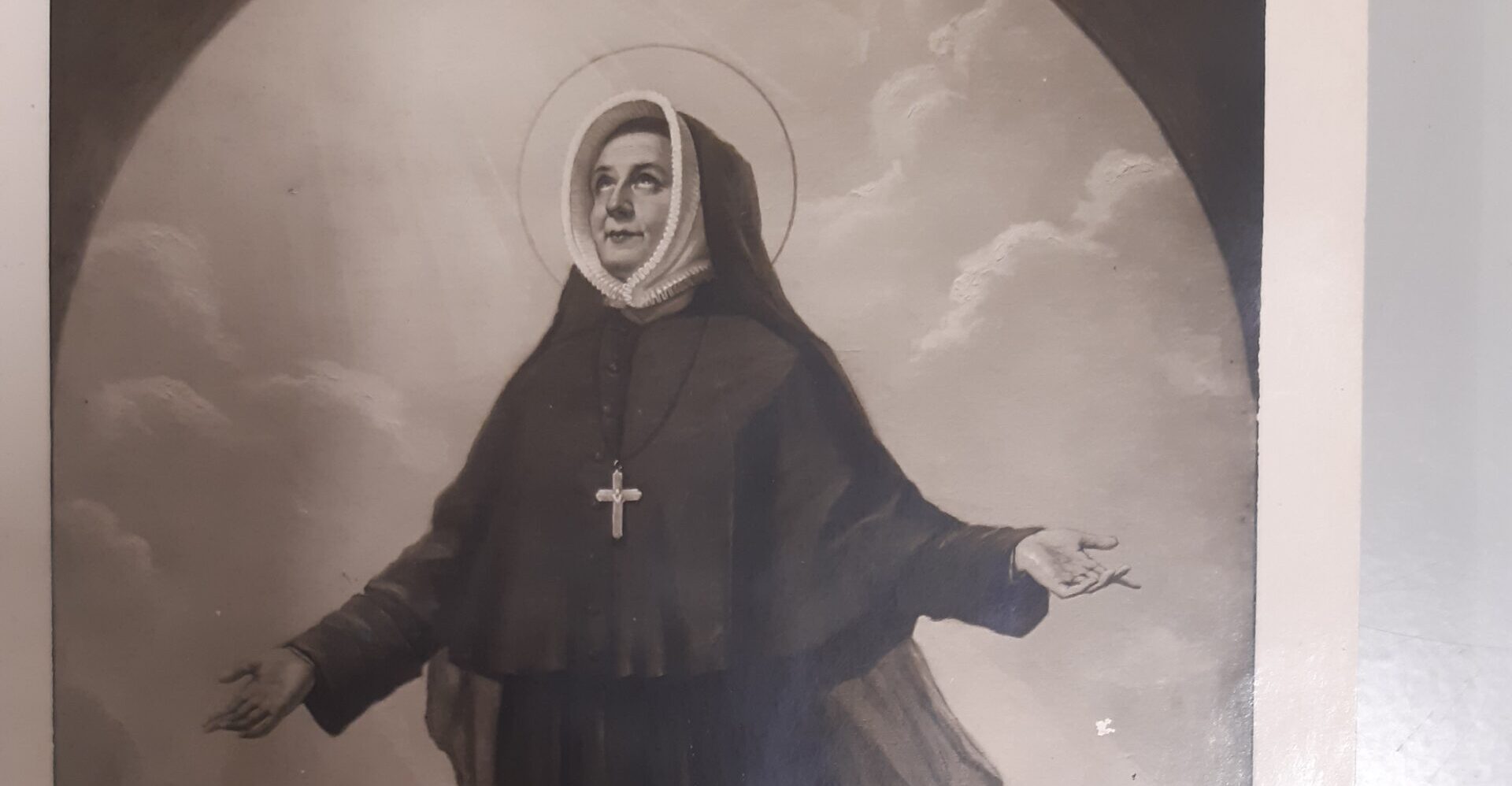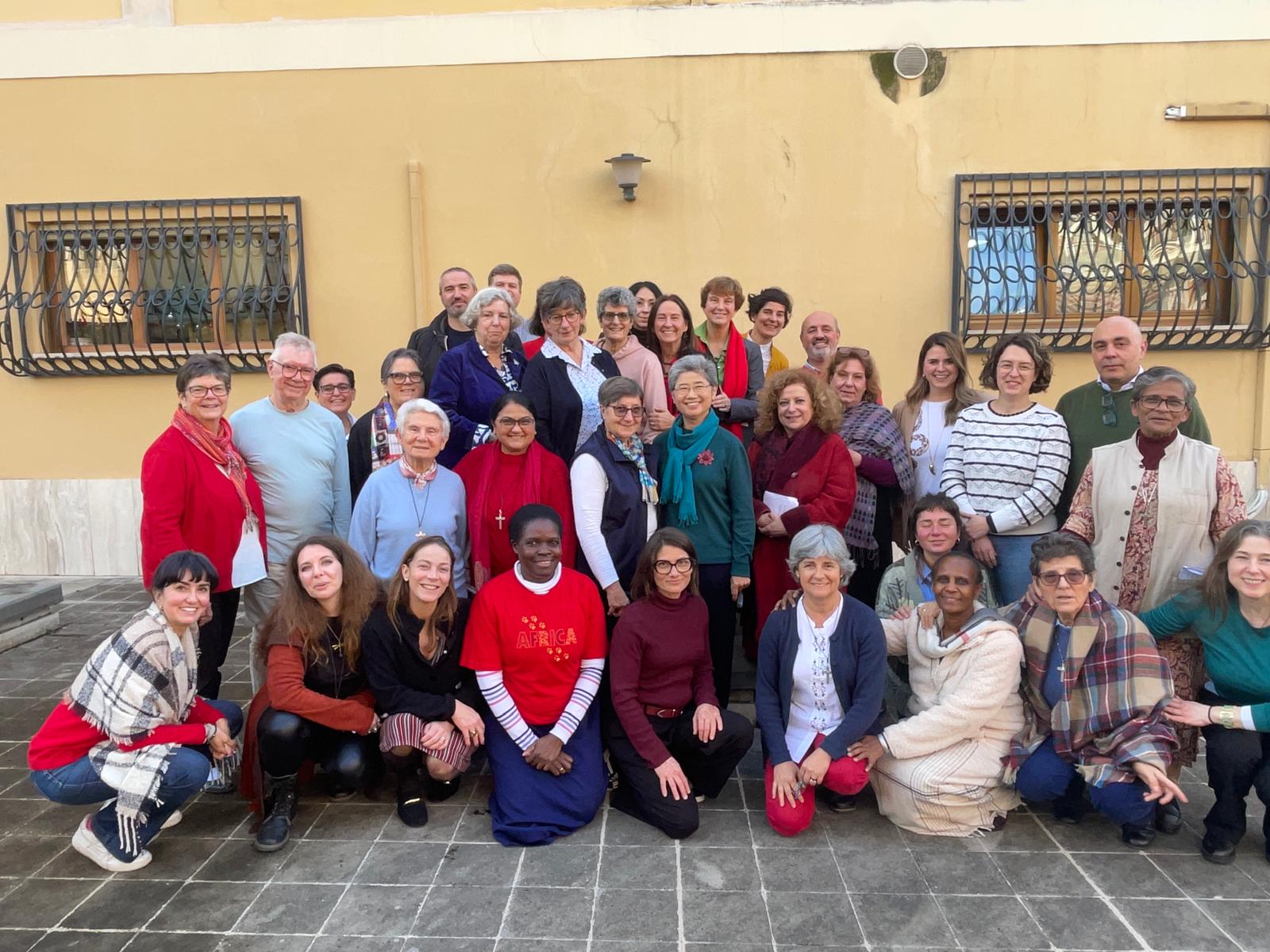At the end of January, Silence came to Spain. There was a table discussion at the Jesuit center, “Cristianismo y justicia” in Barcelona, and one of the panelists asked me for a Japanese perspective on the film or the book. So with the help of Sisters Masuda and Tanabe, I sent some comments about the social, historical background of the impact of Christianity in Shusako Endo’s work. Another friend of mine in Valladolid commented that the title itself had struck him: “It is the Silence of God, but it is also the tremendous suffering of a person who is forced to lock up in silence his faith, that which is most intimate in him.” ~ Miyako Namikawa rscj
I realized that the silence of God the Almighty is something that surpasses human capacity for hearing, seeing, and even faith. God’s mercy can be comprehended only by those who abandoned their faith paradoxically for the sake of the life of other people, by those whose concept of life surpassed the traditional mentality. ~ Sakiko Yamaji rscj
Martin Scorsese, who spent 28 years to complete the film, does not treat the subject from the doctrinal point of view. His main focus is the idea of embracing the weak, without rejecting them, the idea of acceptance, not negation. Through the problem of the “supreme choice” between fidelity to faith or the saving of people’s life, he challenges us with the question: “What is the most important thing for human beings?” This is contrasted against the background of the beautiful and serene scenery of nature. In the final scene, a crucifix is made visible in Rodrigues’ palm. The audience is challenged with the question concerning their spiritual foundation, the need for mutual understanding, and respect for the different ways of thinking. ~ Hideko Suzuki rscj
It is not easy to verbalize the depth of the meaning of silence. What a deaf-and-blind person said is the closest to what I feel: “Some existence that surpasses us is sending us hidden messages. The deliverance of humans depends on whether we can read the code.” Since God is silent, we try to listen to the silent voice and go deeper into our hearts. Kichijiro’s faith . . . He absolutely believed in “the God of mercy, in the God who remains with us, God’s love.” Therefore, no matter how many times he stumbled, he continued to ask for forgiveness. This proves his powerful and deep faith. What about me? ~ Kaeko Hayashi rscj
The reason why the Christians could bear that much suffering is because of the great faith that was given them by God. I am the descendant of those Christians. May the Lord give me the grace to appreciate deeply the sufferings that they experienced! ~ Rue Hikazutani rscj
When I first read the novel "Silence" forty years ago, I was so afraid of excommunication that I felt I could not express my impressions freely. What about now? The sea of Nagasaki … the face of Jesus is visible, reflected on the surface of the waves. Those Christians lived through the days of severe persecutions, always begging for the Lord’s forgiveness. I, too, would like to walk with Jesus, asking for his forgiveness. ~ Seiko Onishi rscj
I was struck by the atmosphere of silence, the sound of insects in the beginning, at the intervals, and at the end of the film. I could deeply resonate with the director’s words: “In writing the script, I cut away as much as possible, in terms of visuals, . . . It’s really the stillness of everything around them, and the life that stillness contains, too. The life we’re not aware of. The life of animals, the life of the insects. The subconscious harmony of the world. The only thing to do is to hold it, and let it sink in a bit, the way it had to sink into them.” (from Rand R. Cooper’s Interview with Martin Scorsese) ~ Sumiko Debuchi rscj
Province |Japan
Our Spirituality |Reflections from Around the World



